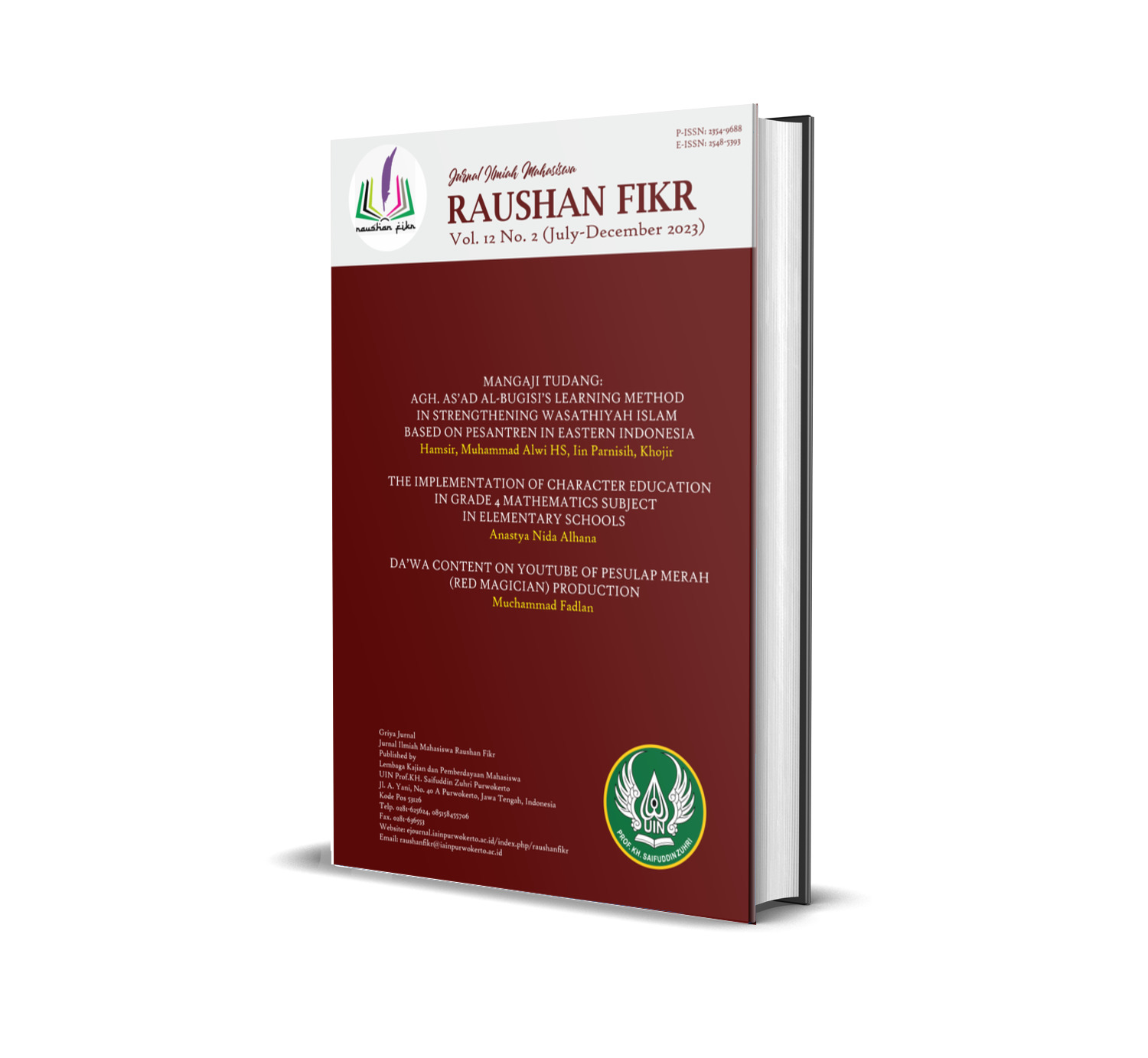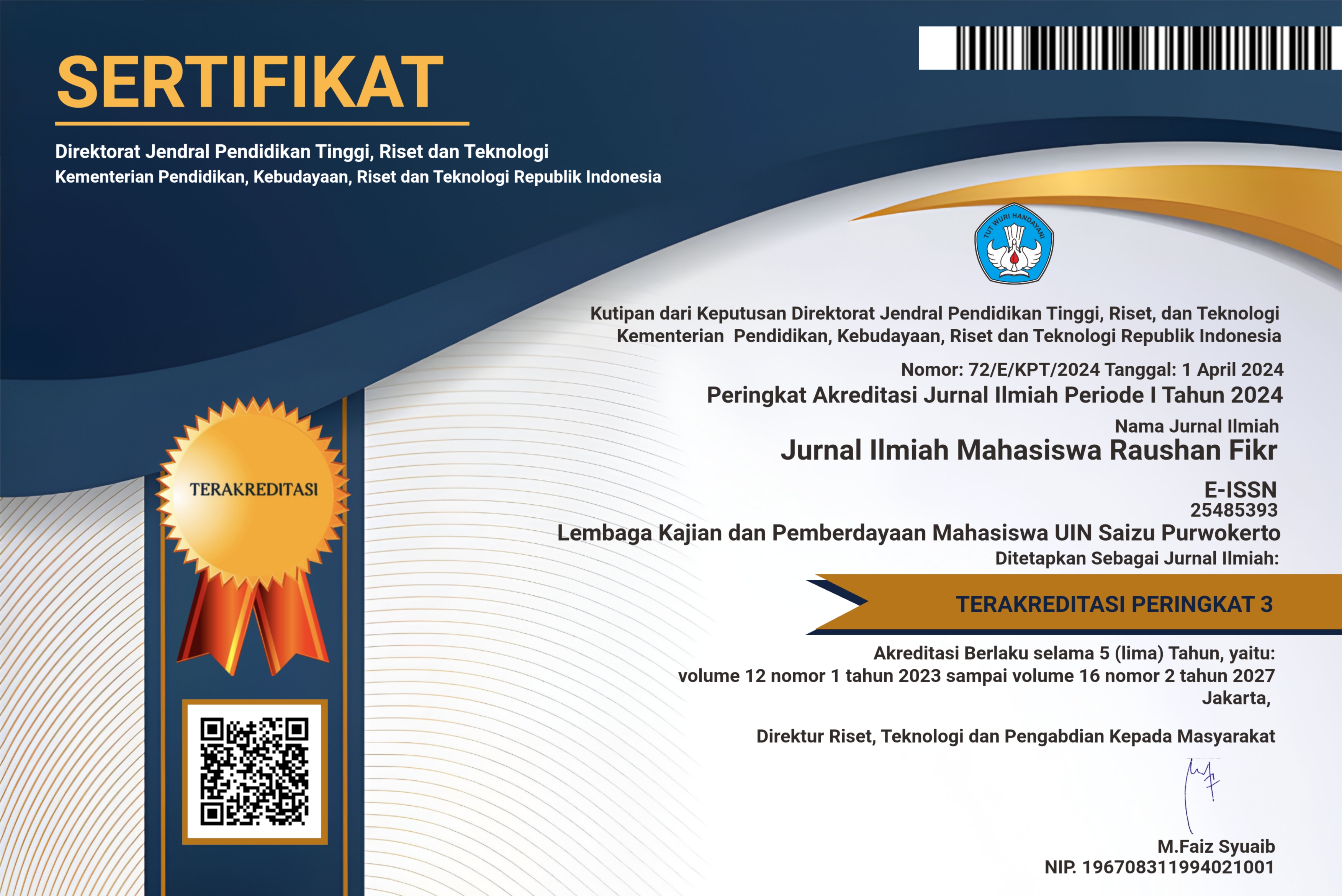Effect of Economic Digitalization on Sharia Economic Growth in Indonesia
DOI:
https://doi.org/10.24090/jimrf.v12i2.8528Keywords:
Economic Digitalization, Economic Growth, Sharia EconomicsAbstract
This study aims to determine the effect of economic digitalization on sharia economic growth in Indonesia. This research uses a literature review method with a descriptive qualitative approach. The qualitative method is a research method based on the philosophy of postpositivism, used to examine the condition of natural objects. Secondary data was obtained through a literature study in which the object of research was journals, books, articles and previous studies that were relevant and related to the situation being studied. Other secondary data sources used to support this research are internet services, magazines, and news related to economic digitalization. The results of this study found that economic digitalization on sharia economic growth has a significant and positive influence. This can be interpreted that Islamic economic growth is influenced by technological developments. As technology develops, it has the potential to increase sharia economic growth in IndonesiaDownloads
References
Agama I, Negeri I. Ekonomi Digital : Peluang Dan Tantangan Masa Depan Terhadap Ekonomi Syariah Di Shinta Maharani Institut Agama Islam Negeri Ponorogo Miftahul Ulum. Published online 2019:1-11.
Aprilia ND, Waluyo SD, Saragih HJR, Pertahanan E, Pertahanan FM. Perkembangan Ekonomi Digital Indonesia The Development Of Indonesia ‘ S Digital Economy. :245-259.
Asnawi A. Indonesia’s Readiness to Build a Digital Economy in the EraIndustrial Revolution 4.0. J Ilm Indones. 2022;7
Development E, Nagri EP, Studi P, Luar P, Pendidikan FI, Malang UN. Peran Digitalisasi Ekonomi dalam Perspektif Islam. 2021;1(4):171-175. doi:10.58737/jpled.v1i4.25
Edo Parpadma Nagri. 2021. “Peran Digitalisasi Ekonomi Dalam Perspektif Islam.” Journal of Practice Learning and Educational Development 1(4): 149–52.
Fitriani, Safira Dhea, Margi Rizki Satriana M, Titin Retnosari, and Nur Rohmawati. 2021. “Digitalisasi Ekonomi Syariah Penerapan Hukum-Hukum Islam Dalam Jual Beli Online.” Jurnal Ekonomi Syariah 6(1): 51–59.
Hasbi, M. Z. N. (t.t.). EKONOMI DIGITAL DAN SISTEM KEUANGAN.
Hidayat, Andi, and Mukhlisin Mukhlisin. 2020. “Analisis Pertumbuhan Zakat Pada Aplikasi Zakat Online Dompet Dhuafa.” Jurnal Ilmiah Ekonomi Islam 6(3): 675.
Keuangan JE, Islam B. Digitalisasi Ekonomi Syariah Aan Ansori IAIN Sultan Maulana Hasanuddin Banten. 2016;7(1):1-18.
Lubis R, K JM. Pengaruh Teknologi Terhadap Produk Domestik Regional Bruto ( Pdrb ) Provinsi DKI Jakarta. 2013;2(1998):1-11.
Lucya C, Anis ALI. Pengaruh teknologi dan pendidikan terhadap pertumbuhan ekonomi di indonesia.
Manajemen SN, Akuntasi E, Sulchan M, Maslihatin MZ, Yulikah A. Peran Digitalisasi Bisnis Terhadap Pemulihan Ekonomi dalam Meminimalisir Pengangguran di Indonesia. Published online 2020:941-948.
Maghfirah, Fitri. 2020. “Peningkatan Perolehan Dana Zakat Melalui Penggunaan Teknologi Online.” Az Zarqa’ Vol. 12, N(2): 58–76.
Maharani, Shinta, and Miftahul Ulum. 2019. “Ekonomi Digital: Peluang Dan Tantangan Masa Depan Terhadap Ekonomi Syariah Di Indonesia.” Conference on Islamic Studies (CoIS ): 1–11.
Rahayu N, Supriyono IA, Mulyawan E, Nurfadhillah F, Dasba F, Yulianto R. Pembangunan Ekonomi Indonesia Dengan Tantangan Transformasi Digital Pembangunan Ekonomi Indonesia Dengan Tantangan Transformasi Digital. Published online 2021.
Supriyadi M, Nahdila M. Dampak ekonomi digital dan tingkat inflasi terhadap pertumbuhan sektor ekonomi di indonesia. 2023;5(6):2745-2750.
Syakur, Anisah. 2018. “Ruang Lingkup Ekonomi Islam.” PANCAWAHANA: Jurnal Studi Islam 13(2): 1689–99.
Triwibowo, A., & Adam, M. A. (t.t.). Etika Bisnis Islam Dalam Praktek Bisnis di Era Digital Ekonomi.
Downloads
Published
How to Cite
Issue
Section
License
Copyright (c) 2023 Muhammad Ash-Shiddiqy, Makhrus Munajar, Muhammad Ghafur Wibowo

This work is licensed under a Creative Commons Attribution-NonCommercial-ShareAlike 4.0 International License.
Authors who publish with this journal agree to the following terms:
- Authors retain copyright and grant the journal right of first publication with the work simultaneously licensed under a Creative Commons Attribution-NonCommercial-ShareAlike 4.0 International License that allows others to share the work with an acknowledgement of the work's authorship and initial publication in this journal.
- Authors are able to enter into separate, additional contractual arrangements for the non-exclusive distribution of the journal's published version of the work (e.g., post it to an institutional repository or publish it in a book), with an acknowledgement of its initial publication in this journal.
- Authors are permitted and encouraged to post their work online (e.g., in institutional repositories or on their website) prior to and during the submission process, as it can lead to productive exchanges, as well as earlier and greater citation of published work (See The Effect of Open Access).
















